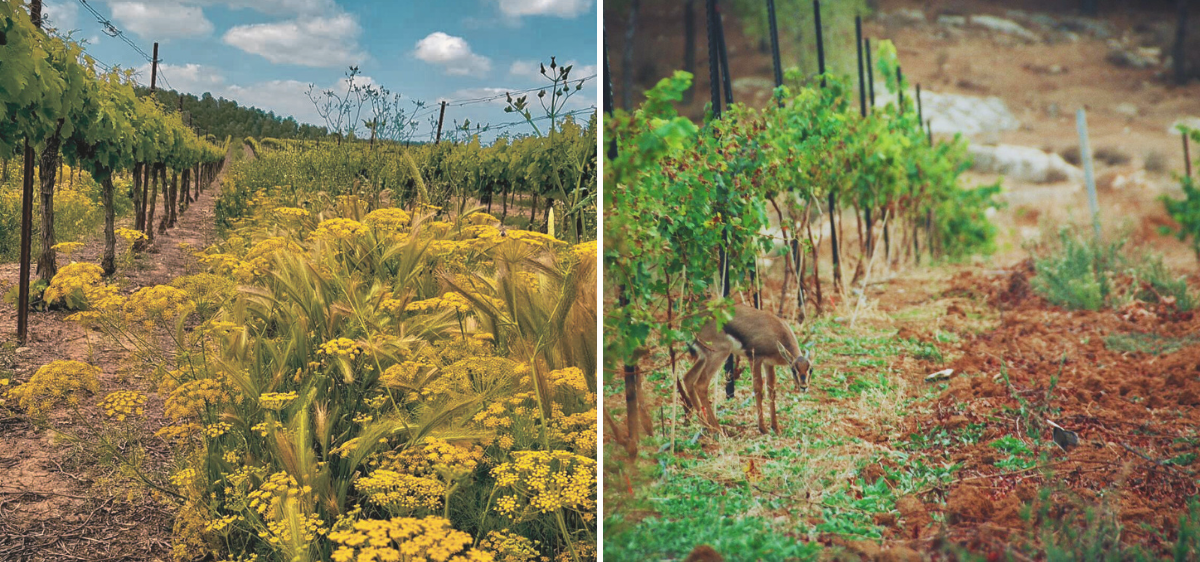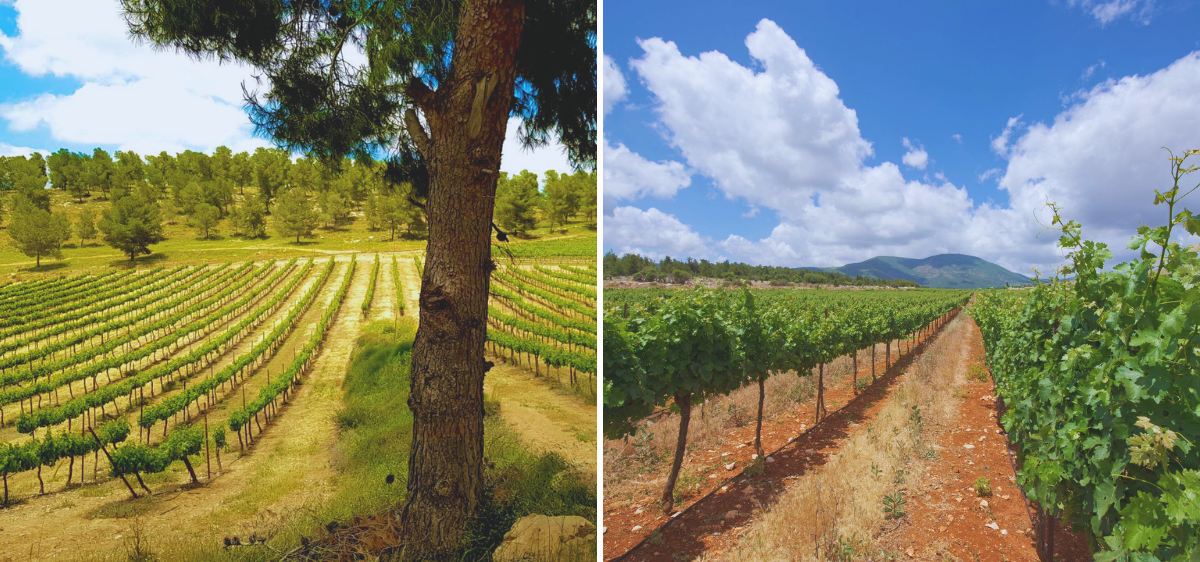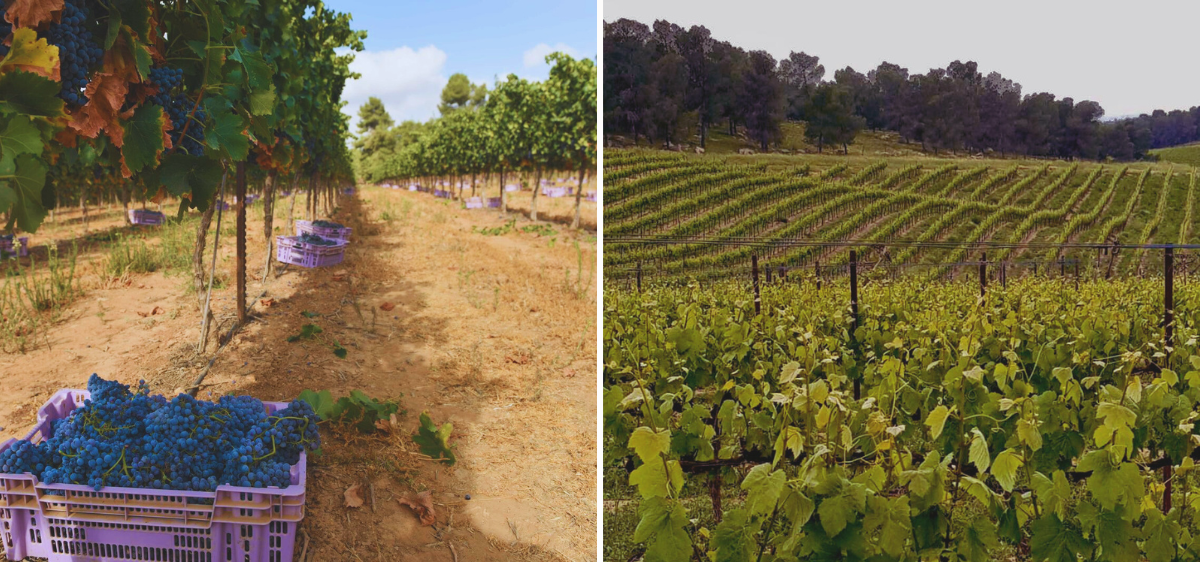Tracing the Legacy: The Historic Carmel Winery and Its Impact on Kosher Winemaking
The Carmel wine region is steeped in history including the establishment of the Carmel Winery by famed winemaker Baron Edmond de Rothschild in 1882. His interest in the area helped reestablish Carmel on the regional maps of the world, restoring a tradition in Israeli winemaking dating back over 3,000 years. Let’s explore the rich history of the Carmel Winery as one of the oldest and most prestigious kosher wine producers in Israel and how their commitment to tradition and innovation launched a new generation of kosher wine lovers.
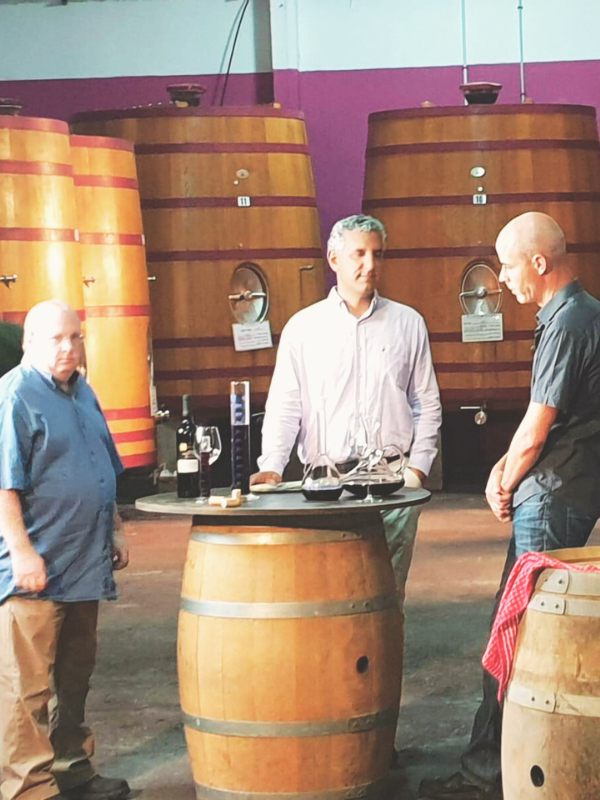
The Birth of Modern Israeli Kosher Wine
Carmel Winery, also known as the Carmel Wine Company, was established in 1882 by Baron Edmond de Rothschild, owner of the iconic Chateau Lafite. However, the Baron did not make his first journey to Israel, until 1887, when he fell in love with the unique terroir of the southern Carmel area. The idyllic setting of the sea, hills and vineyards spoke to him in a profound way and although he had sponsored the planting of local vineyards since 1882, his visit sparked an obsession that helped create what is now the noted, modern Israeli kosher wine industry.
Challenges and Controversies
The Baron's decision to bring Bordeaux varieties to Israel to produce fine wines proved controversial. Despite this he planted Cabernet Franc, Cabernet Sauvignon and Malbec in local vineyards frustrating local farmers who saw low yields and demand in areas where the local market was driven by sacramental wine. Followed by a bout of phylloxera which destroyed the vines, local growers reverted to Carignan and Alicante.
Rothschild’s vision finally came to fruition about 100 years later and today Carmel Winery owns Rishon Le Zion and Zichron Ya'acov, the two largest wineries in Israel, along with Kayoumi Winery and 50% ownership in Yatir Winery and operate 3,472 acres of vineyards in Israel.
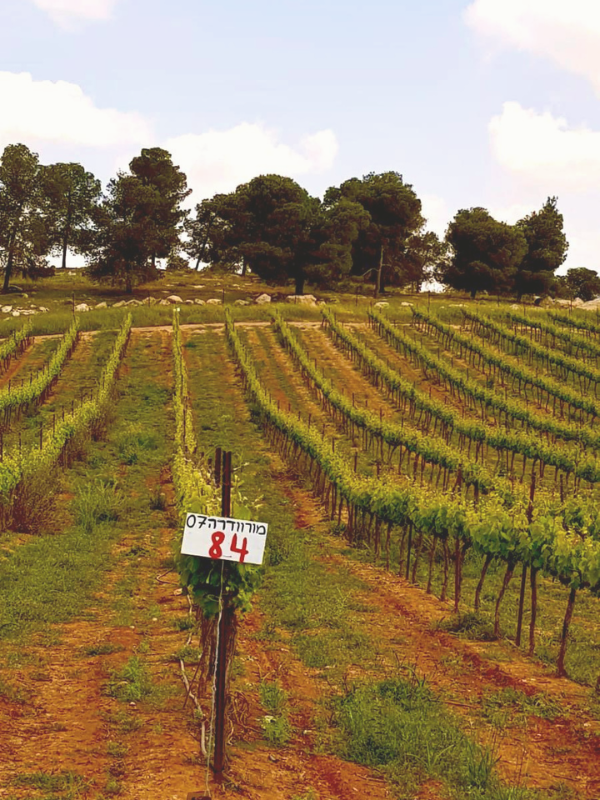
Mount Carmel's Unique Terroir
A major influence on the distinct flavor profiles of the Carmel Winery collection is the winemakers understanding of the unique terroir of the Carmel Appellation. This ideal setting on the slopes of Mount Carmel allows the vineyards to grow exceptional grape varietals. The merging of microclimates related to the different elevations of the hills positively influences grape development creating the vineyard's uniquely intricate flavors.
Crafting Unique Flavors Through Tradition and Innovation
Adding to the terroir’s distinction are the diverse soil types, including limestone, chalk, and clay which create signature grape flavors graced by the breezes of the Mediterranean Sea. However, their winemaking philosophy is steeped in their commitment to preserving old-world traditions while embracing modern winemaking processes that help craft remarkable flavor profiles. It’s this meeting of history and technology that the winery credits as the “new magic” of their wine-making process.
Carmel Signature Wines
The many labels of the winery include Carmel Fine Wines and Carmel Ridge with their signature collection, the Carmel Limited Edition. This rich blend of Cabernet Sauvignon, Petit Verdot, Merlot, Malbec, and Cabernet Franc is achieved by maturing the wine for 15 months in French oak barrels before bottling. Their signature wines also include:
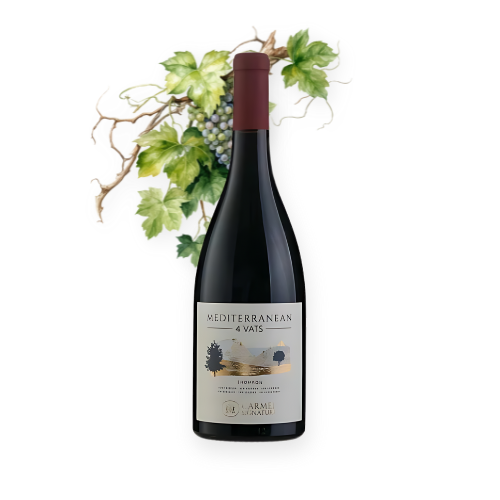
Carmel Vats Series Mediterranean 4 Vats Red 2021
The Carmel Vats Series Mediterranean 4 Vats Red 2021 is a sophisticated kosher wine originating from Israel. This dry red blend presents enticing aromas of ripe red fruits and delicate floral notes, while the palate reveals rich flavors of dark berries, plums, and a touch of spice. The wine's balanced structure and moderate tannins provide a smooth, lasting finish, making it an excellent companion to grilled meats, rich stews, and hearty vegetarian dishes
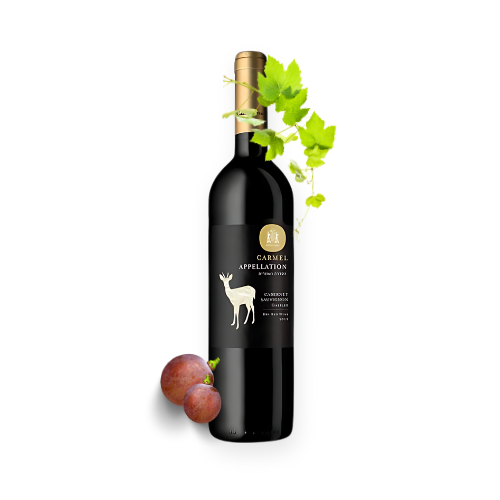
Carmel Appellation Cabernet Sauvignon 2020
The Carmel Appellation Cabernet Sauvignon 2020 is a distinguished kosher wine showcasing a deep ruby red color with vibrant purple hues. It offers an enticing bouquet of blackcurrant, blackberry, and ripe plum, complemented by subtle hints of oak, vanilla, and spice. The full-bodied palate presents robust flavors of dark berries, black cherries, and cassis, balanced by well-integrated tannins and pleasant acidity, leading to a smooth, lingering finish with nuances of cedar, chocolate, and tobacco. This wine embodies Carmel Winery's commitment to quality, making it perfect for both casual and special occasion.
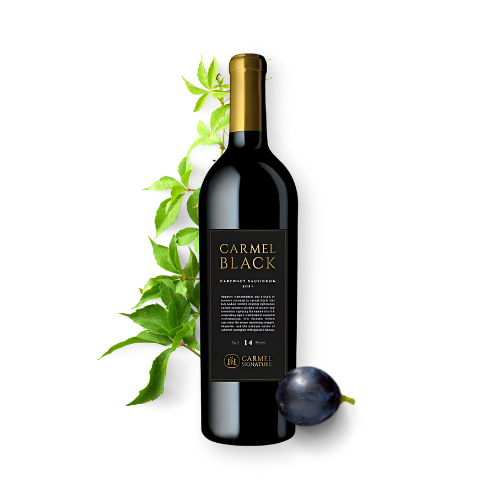
Carmel Signature Black Cabernet Sauvignon 2021
The Carmel Signature Black Cabernet Sauvignon 2021 from Carmel Winery is an exceptional kosher wine with a deep garnet color. It boasts a rich aroma of blackcurrant, ripe blackberry, and plum, enhanced by notes of oak, vanilla, and a hint of spice. The palate is robust and well-rounded, featuring flavors of dark berries, black cherries, and cassis, balanced by fine tannins and refreshing acidity. Subtle oak aging adds complexity with touches of cedar, cocoa, and a hint of tobacco.
-
Visiting Carmel Winery
- Carmel Winery is a destination for wine lovers who flock to the area to enjoy the tours, workshops, and wine tastings at the historic winery. It proudly opens its doors to share its rich heritage and the intriguing story of perseverance that allowed the Israel wine industry to reach its full potential. Their Center for Wine Culture provides visits to its 100-year-old cellars which were carved into the mountains where ancient processes meet innovative winemaking methods.
- Visitors are fascinated by the story of support, struggles and victory of the winery and how the Rothschild family’s contributions to the area’s communities has facilitated the prosperity of struggling farmers for generations. Today the winery's trademark winemaking process is iconic in Israeli and kosher wine and visitors see how history was made from the earliest beginnings to what is now the accepted process for quality kosher wine production.
-
Of course, the highlight of the visit is the wine tasting and educational workshops that help people develop their appreciation for kosher wine. At the Wine & Culture Center, experienced wine guides share their passion with guests making them feel welcome with a focus on personally adapted winery experiences for individuals and groups alike.
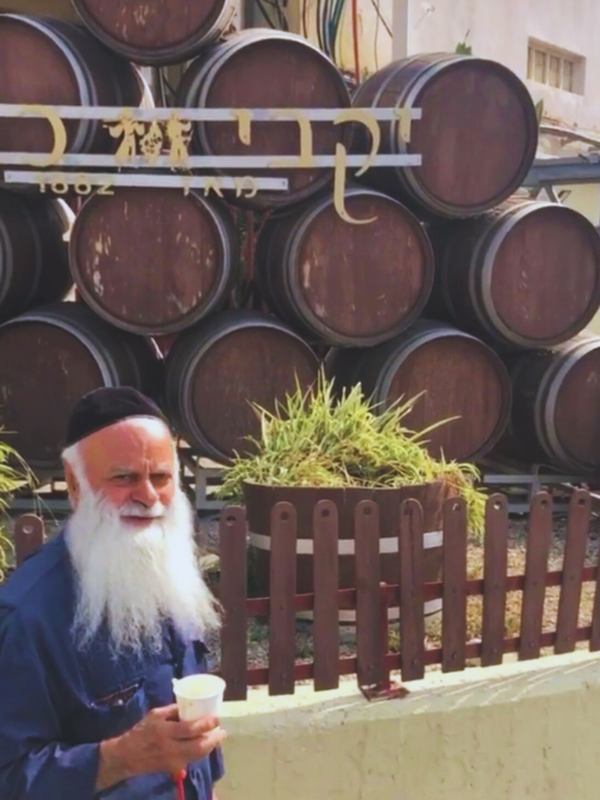
Carmel Winery’s Impact on Kosher Wine
As the largest kosher wine producer in Israel, Carmel Winery produces over 15 million bottles of kosher wine annually. It grows several notable varieties including:
- Cabernet Sauvignon
- Carignan
- Shiraz
- Merlot
- Riesling
- Gewürztraminer
- Sauvignon Blanc
- Viognie
The Rothschild family has had a significant influence in Israel, helping build the economy, earning Baron Edmond de Rothschild the honored title of “Benevolent Provider.” His commitment to help early Israeli pioneers construct the country’s first winery was the catalyst for what has become recognized as one of the world’s first wine regions. The region now produces award-winning wines not just as kosher wines, but as exceptional wines in their own right.
Share this page:






